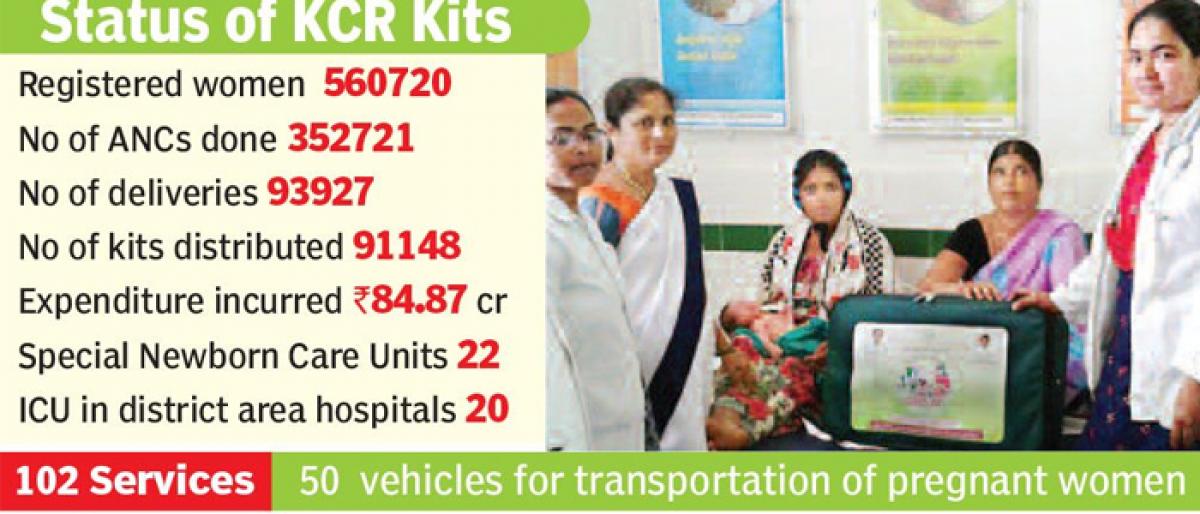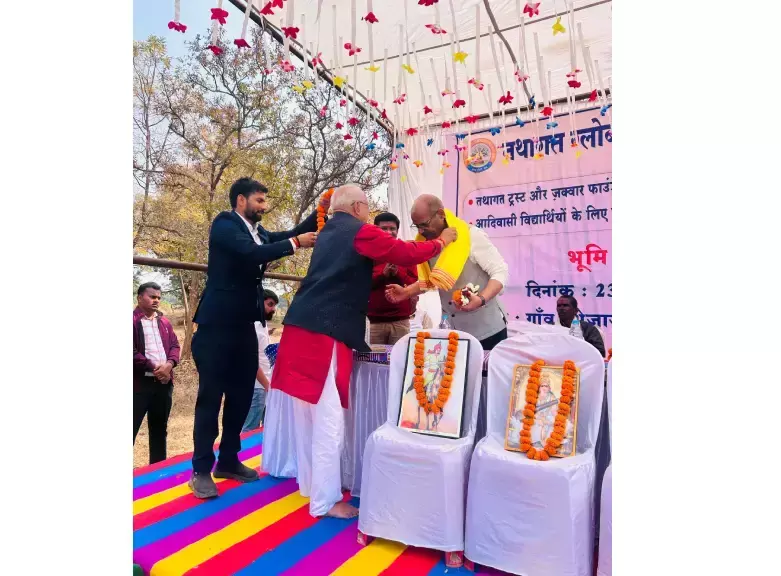Institutional deliveries on rise

With the introduction of KCR Kits, there is steep increase in deliveries in public health institutions across the State. The number of deliveries during the month of January 2017 was 17,543, which rose to 26,898 during September 2017. In terms of percentage of estimated deliveries, in January 2017, the percentage was 32.9 percent and it rose to 50.44 percent in September 2017.
Hyderabad: With the introduction of KCR Kits, there is steep increase in deliveries in public health institutions across the State. The number of deliveries during the month of January 2017 was 17,543, which rose to 26,898 during September 2017. In terms of percentage of estimated deliveries, in January 2017, the percentage was 32.9 percent and it rose to 50.44 percent in September 2017.
According to officials, the government has been concerned about the Mother and Child Health (MCH) services provided to the poor. Though the institutional deliveries in the State are at 92 percent, the deliveries in government facilities were very low at 31 per cent. The poor citizens are forced to shell out a lot of money toward expenditure for deliveries. The Caesarean Section (C-Sections) rates are high at 58 per cent, particularly 74 percent in private hospitals.
However, with a view to reduce Maternal Mortality Ratio (MMR) and Infant Mortality Rate (IMR), the government has launched a new initiative called KCR-Kit programme with the objective to provide quality healthcare, compensate wage loss of pregnant women, ensure quality ANC check-ups, increase in public institutional deliveries and to minimise indiscriminate C-Sections.
Meanwhile, nine 150-bedded Mother and Child Health blocks have been attached to district hospitals. Seven more 100-bedded and five 50-bedded MCH blocks are sanctioned. 231 Labour rooms are being standardised and 95 already completed.
For transportation of pregnant women for ANCs and delivery, post-delivery drop and immunisation, the Health Department has introduced 102 services. Presently 50 vehicles are providing services in tribal areas. Another 200 vehicles will be added shortly.
With the KCR Kits programme, Telangana stood second in the country in newborn care better than Kerala, Karnataka, AP and Gujarat, according to Special Newborn Care Units (SNCU) Quality of Care Index report.
Speaking to The Hans India, Vakati Karuna, Commissioner of Health and Family Welfare Department, said not only distributing kits, but also they were focusing on some interventions under this programme. “A comprehensive approach to safe motherhood with birth planning is being adopted. For this, labour rooms are being standardised.
To increase institutional deliveries, we give utmost important to strengthening of referral units. Specialist services have been increased in tribal and remote areas. To boost confidence among pregnant women, transportation services are being provided,” she said. To transfer money directly to the beneficiaries’ accounts, Direct Benefit Transfer (DBT) system has been introduced and for tracking pregnant women and high-risk pregnancies, a new software had been developed, said Karuna.














